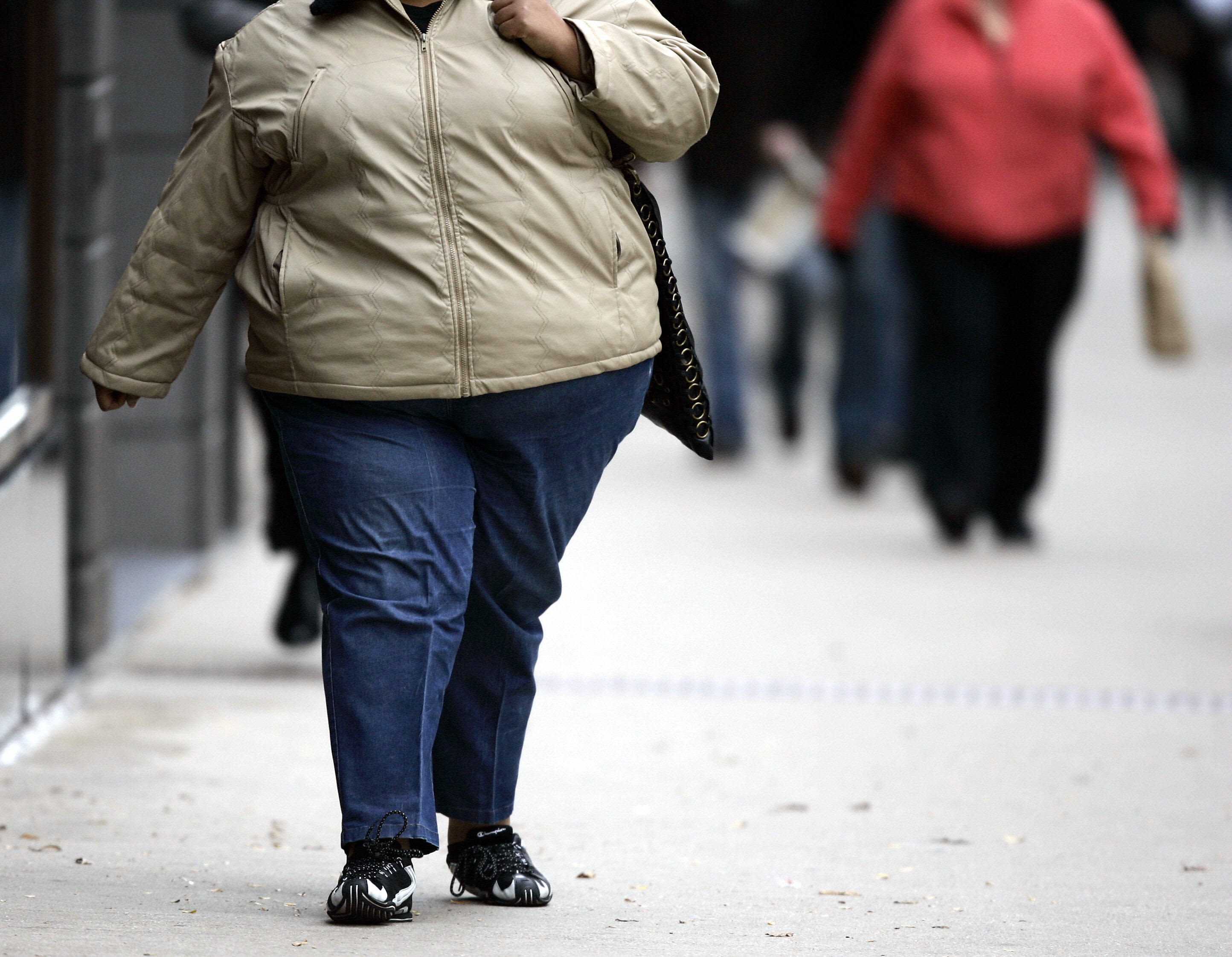A woman walks down the street on Michigan Avenue in Chicago, Illinois.
Jeff Haynes | AFP | Getty Images
An overwhelming majority of people admitted to the hospital, needing a ventilator or dying of Covid-19 were overweight or obese, the CDC said in a new study on Monday.
Among 148,494 adults who received a Covid-19 diagnosis during an emergency department or inpatient visit to 238 U.S. hospitals during March to December, 71,491 were admitted to the hospital. Of those admitted, 27.8% were overweight and 50.2% obese, according to the CDC report. Overweight is defined as a body mass index of 25 or more, while obesity is defined as a BMI of 30 or more.
The agency found that the risk of hospitalizations, admissions, and deaths on ICUs was lowest among individuals with BMIs under 25 years of age. The risk of serious diseases has ‘increased sharply’ as BMIs have risen, especially among people aged 65 and older, the agency said.
Just over 42% of the U.S. population was considered obese in 2018, according to the agency’s latest statistics.
It does not take many extra pounds to be considered overweight or obese. A 5-foot, 10-inch man at 175 pounds and a five-foot-tall woman at 146 pounds will both be considered overweight with a BMI of just over 25, according to the CDC’s BMI calculator. A man and woman of the same heights are considered obese, weighing 210 pounds and 175 pounds, respectively.
“As clinicians develop care plans for COVID-19 patients, they should consider the risk of serious outcomes in patients with higher BMIs, especially for those with severe obesity,” the agency wrote.
The CDC added that the findings highlight the clinical and public health implications of higher BMIs, including the promotion of Covid prevention strategies, such as continued vaccination prioritization, masking, and policies to ensure community access to nutrition and physical activity.
Obesity is a common and expensive chronic disease in the USA. Non-Hispanic black adults have the highest prevalence of self-reported obesity in the U.S., followed by Hispanic adults and non-Hispanic white people, according to the CDC.
The CDC has previously noted that obesity increases the risk of serious diseases, including hospitalizations. The obesity is related to weakened immune function and reduced lung capacity that can complicate ventilation, the agency said.
The study had limitations, the CDC said. Risk estimates for severe Covid-19 were measured only among adults cared for in a hospital. Therefore, these estimates may differ from the risk among all adults with Covid, the CDC said. In addition, only patients with reported height and weight information were included in the report.
The CDC obtained data from PHD-SR, a large, hospital-based database.
